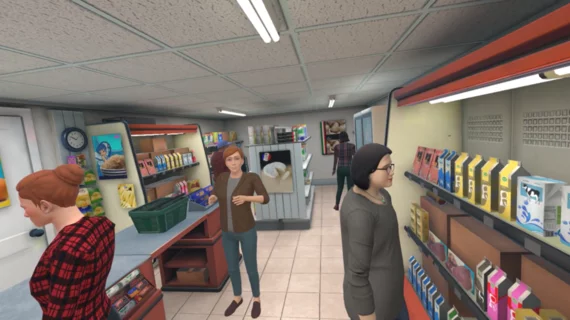New VR program helps users face social situations with confidence
Oxford VR, a U.K.-based virtual reality (VR) technology company, has launched an automated mental health program aimed at helping users overcome anxious social avoidance. This new intervention, known as social engagement, was designed to help patients with agoraphobia, panic disorder, social anxiety, depression, schizophrenia and other common mental health conditions.
The program was developed by Oxford VR specialists and builds on years of work carried out by Oxford University researchers. Users participate in half-hour sessions each week, putting on a VR headset and interacting with a “virtual world where they are guided by a virtual coach and required to complete a series of graded tasks.” Sessions will take participants through walking down a busy street, riding a public bus, shopping and other common activities known to be affected by feelings of anxious social avoidance.
As the program continues, users will be asked to overcome “problematic situations” as they interact with “life-like, interactive and engaging” environments.
“Our vision is to turn the tide on life-interrupting mental illnesses pushing the boundaries of clinical excellence and new technology to transform lives,” June Dent, director of clinical partnerships for Oxford VR, said in a prepared statement. “The immersive nature of VR provides a powerful new way to engage users and helps them to regain confidence, feel safe and overcome trigger situations. This innovative program has been created with the voices and expertise of people affected by anxious social avoidance and applies proven evidence-based psychological techniques.”

